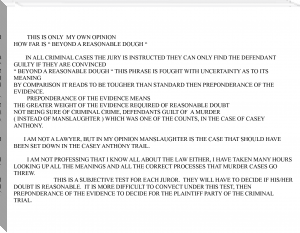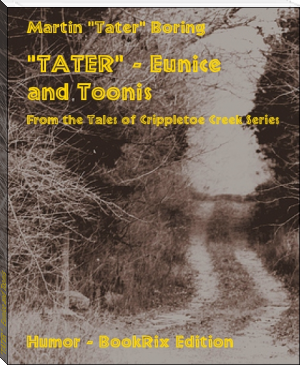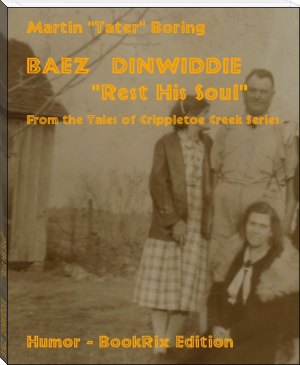All Aboard; or, Life on the Lake<br />A Sequel to "The Boat Club" by Oliver Optic (ebook reader ink .txt) 📗

- Author: Oliver Optic
Book online «All Aboard; or, Life on the Lake<br />A Sequel to "The Boat Club" by Oliver Optic (ebook reader ink .txt) 📗». Author Oliver Optic
"Ready—pull!" said Frank; and the crews bent to the work.
"Now give it to 'em!" shouted Tim Bunker, as he struck out with his oar.
"Steady, Tim," said Frank. "Be very careful, or you will lose the stroke."
"No, I won't. Put 'em through by daylight!" And Tim, without paying much attention to the swaying of the coxswain's body, by which his stroke should have been regulated, redoubled his exertions. He was very much excited, and the next moment the handle of his oar hit the boy in front of him in the back. Then the boy behind hit him, and a scene of confusion immediately ensued. Of course no boy could pull his stroke except in unison with the others; so the whole were compelled to cease rowing.
"We have lost it," said Frank, good-naturedly.
The boys, seeing how useless it was to attempt to row in the midst of such confusion, were obliged to wait till order had been restored.
"No, we hain't; pull away!" replied Tim, as He seized his oar, and began to row with all his might.
"Cease rowing!" said Frank.
"Catch your oars, you sleepies, or they will get in first!" exclaimed
Tim, who continued to struggle with his oar in defiance of the order.
He had already pulled the boat half round.
"I guess the fifty dollars won't come to this crew," added Tim, contemptuously.
"It certainly will not, if you don't obey orders better than that," replied Frank.
"I don't want to have the club beat so easy as that."
"But it is all your fault, Tim."
"You lie!"
"What! what!" exclaimed Frank. "We cannot have such language as that. If you don't conform to the constitution you have signed, you shall be put on shore at the nearest land."
"Well, I ain't a going to have it laid to me, when I hain't done nothing. Didn't I pull with all my might and main? and if the other fellers had done so too, we should have been ahead of 'em afore this time," answered Tim, somewhat tamed by the threat of the coxswain.
"We will not talk about that until you say whether you intend to conform to the rules of the club, or not," added Frank, firmly.
"Of course I do."
Tim was still gruff in his tones; but it was evident that he wanted to conform to the rules, and that his obstinacy was still struggling for expression.
"You must not tell the coxswain, or any other member, that he lies,
Tim," continued Frank.
"That was a slip of the tongue."
The Bunker tried to laugh it off, and declared that he was so used to that form of expression he could not leave it off at once. This was regarded as a great concession by all.
"Very well; if you will promise to do your best to obey the rules, we will say no more about it."
"Of course I will," replied Tim, with a laugh, which was equivalent to saying, "If any of you think I am yielding too much, why, I am only joking."
"Now, Tim, that point being settled, I repeat that our mishap was caused by you, though we don't blame you for it. You meant to do your best, but you didn't go to work in the right way."
"What's the reason I didn't?"
"You broke up the stroke."
"The fellers ought to have pulled faster, then, so as to keep up with me; if they had, we should have done well enough."
"That is not the way. The coxswain is to judge how fast you may pull with safety."
"Just as you like. All I wanted was to win the race."
"I understand you; but we can do nothing if the discipline of the club is not observed."
"I didn't know about that."
"Let us understand one another for the future. You must regulate your stroke by the motion of my body. You are to see nothing but me; and whatever happens, you must obey orders."
"Let's try it again. I will do as you say," replied Tim, with a great deal more gentleness than he had before shown.
"Ready—pull!" said Frank. And away darted the Zephyr up the lake.
Tim pulled very steadily now, and showed a disposition to do as the others did, and to obey orders. Frank was pleased with the result of the conference, and began to entertain strong hopes of the ultimate reformation of the Bunker.
But the race was lost; the Butterfly was almost at the head of the lake.
"There's a chance for the Butterflies to crow over us," said Tim, after a silence of several moments.
"There is to be no crowing. If we had beaten them, I should not have permitted a word to be spoken that would create a hard feeling in the minds of any of them," replied Frank. "And I know that Tony is exactly of my mind."
"It is no great credit to them to have beaten us under these circumstances," added Fred.
"Each club must be responsible for its own discipline. No excuses are to be pleaded. Good order and good regulations will prevent such accidents as just befell us."
"That is what discipline is for," said William Bright.
"Exactly so. Don't you remember what Mr. Hyde told me when I tried to excuse myself for not having my sums done with the plea that I had no pencil?" asked Charles Hardy. "He said it was as much a part of our duty to be ready for our work as it was to do it after we were ready."
"That's good logic," put in Fred. "If the engine companies did not keep their machines in good working order, of course they would render no service at the fire. You remember Smith's factory was burnt because 'No. 2's' suction hose leaked, and the 'tub' couldn't be worked."
"That's it; in time of peace prepare for war."
"Where's the Butterfly now?" asked Tim, who did not feel much interest in this exposition of duty.
"She is headed up to Rippleton River," replied Frank. "I hope she does not mean to venture among the rocks."
Rippleton River was a stream which emptied into the lake at its eastern extremity. Properly speaking, Wood Lake was only a widening of this river, though the stream was very narrow, and discharged itself into the lake amid immense masses of rock.
The mouth of this river was so obstructed by these rocks, that Captain Sedley had forbidden the boys ever to venture upon its waters; though, with occasional difficulties in the navigation, it was deep enough and wide enough to admit the passage of the boat for several miles. A wooden bridge crossed the stream a little way above the lake—an old, decayed affair which had frequently been complained of as unsafe.
"Tony knows the place very well," said Charles. "He will not be rash."
"But there he goes right in amongst the rocks, and the Butterflies are pulling with all their might. He is crazy," added Frank, his countenance exhibiting the depth of his anxiety.
"Let Tony alone; he knows what he is about," responded Fred.
"Heavens!" exclaimed Frank, suddenly, as he rose in his place. "There has been an accident at the bridge! I see a horse and chaise in the river."
Tim dropped his oar, and was turning round to get a view of the object, when Frank checked him. So strict was the discipline of the club, that, notwithstanding the excitement which the coxswain's announcement tended to create, not another boy ceased rowing, or even missed his stroke.
"Keep your seat," said Frank to Tim. "Take your oar."
"I want to see what's going on," replied Tim.
"Keep your seat," repeated Frank, authoritatively.
Tim concluded to obey; and without a word resumed his place, and commenced pulling again.
"Tony is after them; if you obey orders we may get there in season to render some assistance," continued Frank. "Don't balk us now, Tim."
"I won't, Frank; I will obey all your orders. I didn't think when I got up," replied Tim, with earnestness, and withal in such a tone that Frank's hopes ran high.
"Will you cross the rocks, Frank?" asked Charles Hardy.
"Certainly."
"But you know your father told us never to go into the river."
"Circumstances alter cases."
"But it will be disobedience under any circumstances."
"We won't argue the point now," answered the bold coxswain, quickening the movements of his body, till the crew pulled with their utmost strength and speed, and the Zephyr flew like a rocket over the water.
"I don't like to go, Frank, and though I will obey orders, I now protest against this act of disobedience," replied Charles, who was sure this time that Captain Sedley would commend and approve his inflexible love of obedience.
"Pull steady, and mind your stroke," added Frank, whose eye was fixed upon the chaise in the water.
"We may strike upon the rocks and be dashed to pieces," suggested
Charles.
"If you are afraid—"
"O, no! I'm not afraid; I was thinking of the boat."
"If it is dashed to pieces in a good cause, let it be so."
"Good!" ejaculated Fred Harper. "That's the talk for me!"
"The water in the lake is very high, and I know exactly where the rocks lie. Keep steady; I will put you through in safety."
"Where is the Butterfly now, Frank?" asked William Bright.
"Wait a minute.—There she goes! Hurrah! she has passed the reefs safely. They pull like heroes. There! Up go her oars—they are in-board. There are a man and a woman in the water, struggling for life. The man is trying to save the woman. The chaise seems to hang upon a rock, and the horse is kicking and plunging to clear himself. Steady—pull steady."
"Tony will save them all," said Fred.
"Hurrah! there he goes overboard, with half a dozen of his fellows after him! There are six left in the boat, and they are working her along towards the man and woman. They have them—they are safe. Now they pull the lady in—hah—all right! I was afraid they would upset the boat. They have got her in, and the man is holding on at the stern. Tony has got a rope round the horse's neck, and the fellows are clearing him from the chaise."
The Zephyr was now approaching the dangerous rocks, and Frank was obliged to turn his attention to the steering of the boat through the perilous passage.
"Steady," said he, "and pull strong. All right; we are through. We are too late to do anything. They have landed the man and woman, and now they are towing the horse ashore. Tony's a glorious fellow! He is worth his weight in solid gold!"
"Can't we save the chaise?" asked Tim Bunker.
"We can try."
"Hurrah for the chaise then!"
"Bowman, get the long painter ahead," continued Frank.
"Ay, ay."
The coxswain of the Zephyr steered her towards the vehicle, which still hung to the rock, and, by a skilful maneuver, contrived to make fast the line to one of the shafts of the chaise.
"Ready—pull!" said Frank, as he passed the line over one of the thwarts.
The crew pulled with a will, and the jerk disengaged the chaise, and they succeeded in hauling it safely to the shore, and placing it high and dry upon the rocks.
CHAPTER VI. HURRAH FOR TONY!Tony and his six companions, who had been with him in the river, stood on the rocks shivering with cold, when the Zephyr's crew landed. The rest of her boys had been sent to conduct the lady and gentleman to the nearest house, and render them such assistance as they might require.
"You are a brave fellow, Tony!" said Frank, warmly, as he grasped the wet hand of his friend.
"I am very wet and cold, whatever else I may be," replied Tony, trying to laugh, while his teeth chattered so that he could hardly speak.
"You had better go home; you will catch cold," continued Frank.
"We must wait for the fellows."
"No, you shall take six of the Zephyr's crew, and pull home as fast as you can, and we will wait for the rest."
"We can do no more good here; so we may as well go. Thank you for your offer, Frank, and I will accept it. If you like I will take Fred Harper to steer down, for I should like to pull an





Comments (0)